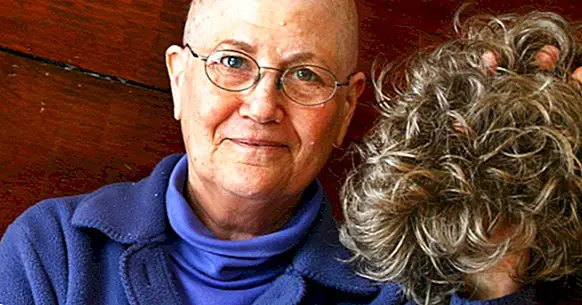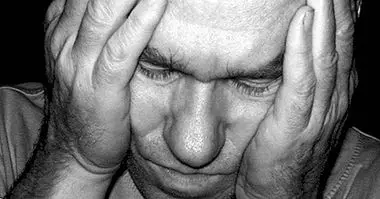Psycho-oncology: the role of the psychologist in cancer
It is not surprising that if you hear the word cancer you will get a chill . Surely you know someone close to you who is a victim of this disease, or you may even suffer from it or have suffered it in your own flesh; No one is immune to this disease that destroys lives in its path.
According to data from the World Health Organization (WHO), it is one of the main causes of mortality worldwide, and the death figures for this cause increase over the years.
That is why it is important to know the tools we have to face this reality. And, among these helps, is the Psycho-oncology, of which I would like to speak to you.
- Related article: "Types of cancer: definition, risks and how they are classified"
The psychological impact of cancer
For cancer patients, the disease causes physical, emotional and social difficulties . The high levels of depression, anxiety and anguish that this pathology entails make it necessary to recognize the role of psychological and emotional problems in patients with cancer and their relatives.
Different studies show that between 30 and 50% of people with the disease they present some psychological alteration susceptible of psychological treatment, being the most frequent adaptation disorders, anxiety and depression. The family and the main caregivers of the sick or ill also show a high degree of suffering. The role of the family and its support for cancer is of crucial importance for a good adaptation of the patient to the disease.
- Maybe you're interested: "The 10 keys to dealing with emotional pain"

What is Psycho-oncology?
The branch of psychology responsible for the intervention and advice of both people affected by cancer and their relatives and caregivers, it is known as Psycho-oncology .
This discipline gives important benefits to cancer patients and their families: provides emotional support, reduces the impact that the disease generates in the person affected and their environment, provides coping skills, management and adaptation to the disease, helps to understand the disease facilitating medical adhesion, and improves communication with the medical team.
In short, Psycho-oncology aims to promote the quality of life of the patient and his relatives in the different phases of the oncological disease.
Psycho-oncology according to the phases of the disease
The intervention of the psycho-oncologist differs depending on the evolution of cancer , since the psychological manifestations change depending on the stage of the illness in which the patient is, of his symptomatology and of the treatments received.
This can intervene in different phases throughout the evolution of the disease.
1. Diagnostic phase
The response to receiving the diagnosis usually consists of after an initial moment of shock , in intense emotional responses that include sadness, anger, anxiety, feelings of helplessness, depression, etc. Therefore, the work of the psychologist seeks to mitigate the emotional impact that triggers a diagnosis of cancer, provide the patient and their family with emotional support and coping strategies to cope with the disease.
2. Treatment phase
The treatments for cancer (surgery, chemotherapy, radiotherapy) are aggressive, painful, annoying and with multiple side effects. Therefore, psychological support, treatment to manage pain and relief from emotional distress They can help the patient to adhere to medical treatment.
3. Referral phase
In this stage where cancer has subsided, the intervention of the psycho-oncologist is based on facilitating the expression of fears and concerns , both of the patient and of his relatives, due to the uncertainty and the threat of re-presenting the disease. It is important for the psychologist to consolidate a close therapeutic link, to deal with emotional disturbances and to provide the necessary psychological tools to be able to return gradually to normality.
4. Relapse phase
It is a stage of great impact because it triggers intense emotional reactions (anger, anger, aggression, despair, etc.). The intervention by Psycho-oncology in this period it consists in approaching and treating depressive and anxious states that can be generated in the patient and their relatives and work in the adaptation to the new pathological state.
5. Terminal phase
Some of the emotions that usually emerge in this phase are denial, anger, depression, isolation, aggression and fear of death. To the patient you are provided with palliative care , ie, the patient's healing is no longer possible and it is pursued that he receives the best care in his transition to death. For this, it is necessary to attend to psychological difficulties, manage pain and physical symptoms, offer social, emotional, and spiritual support and strengthen control strategies in the terminally ill patient.
6. Death
When death is imminent, the task of accompanying the patient in the process of dying and his family in the elaboration of mourning arises, with the aim of preventing a pathological mourning . The psycho-oncologist must address the different emotions facing the patient in the face of death in order to channel their feelings, guide them to close their pending issues and accept their new reality.
7. Duel
The psychological treatment is aimed at helping relatives and relatives before the loss of the loved one, accepting his absence, working the emotions and the pain it generates, in order to adapt to life without the deceased person.
As we have seen, the work of the psycho-oncologist is of crucial importance to reduce the anxiety and depression that a large number of cancer patients and their families have, to support them in all phases of the disease, achieving a better adjustment, and less suffering in this difficult battle against the disease.
- Maybe you're interested: "The duel: facing the loss of a loved one"
Bibliographic references:
- Almanza M. Holland J. Psycho-oncology, current status and future perspectives. Rev. National Institute of Cancerology: Vol.46 No. 3.
- Die Trill, M. (2003). Psycho-oncology Madrid. Ades Editions.
- Hernández, M. Cruzado J.A. and Arana, Z. (2007). Psychological problems in patients with cancer: difficulties of detection and referral to the psycho-oncologist. Psycho-oncology, 4, 179-191.



















